FOCUS
SCALP!
A group of DEC students has decided to promote dialogue between the community of cognitive scientists, the general public, and civil society about important and controversial questions that have long been ignored by the scientific community.

Who are you? Could you present Scalp! in a few words?
Scalp! is a community organization founded in July 2015 that follows France's associative law. It's made up mostly of PhD students in cognitive science, but also by other politically active people, and PhD students in political science and engineering.
We are supported by the DEC and the ENS, and we work without a hierarchy,
preferring a horizontal model whereby all decisions are made by 3/4 majority vote.
If you're interested in contacting us, you can send an email at association.scalp@gmail.com or check us out on our Facebook page "Scalp - Sciences Cognitives et Société".
What is Scalp!'s goal? How is Scalp! linked to Cognitive science?
Scalp! is based on the idea that cogitive science (a relatively recent interdisciplinary field of research that is currently booming)
has become necessary to our understanding of the world. Whether it's about making decisions concerning education, health, or work, or understanding
the factors that come into play when considering general behavior and the different effects it can have, the naturalist approach to the study of
mankind that has developed in the field of cognitive science over the past 60 years is starting to reach a maturity that will allow it to be seriously
applied to make a difference in our lives. Scalp!'s goal is to encourage dialogue amongst the cognitive science community and with the general public and civil society about important and controversial questions that have long been ignored by the scientific community. Concretely, we plan on organizing conferences, round tables, and debates which will deal with contemporary societal issues (e.g., education, the environment, expertise, discrimination, health, safety, etc.), in a systematic way, with invited speakers from the cognitive science research community, and with interaction with an interdisciplinary audience.
You organized your first event on June 22nd at the ENS. It was a round table with the theme: "Expertise in public debate". Frédéric Taddeï (journalist and TV personality), Wiktor Stoczkowski (EHESS), and Franck Ramus (DEC/ENS) were your invited speakers. Why did you choose this theme as your first topic? Why did you choose these speakers?
 Given our desire to bring in scientific specialists in our decision process, it was absolutely necessary to begin by clarifying what we mean when we say "expert".
It's not a necessary a priori that scientific expertise be a privileged source of information, and indeed we wanted to examine the presuppositions that we
make in our decision process. We invited Frédéric Taddeï (journalist and television personality) to represent the public mindset, Franck Ramus (cognitive
scientist at the ENS, CNRS) to represent the scientific aspect, and Wiktor Stoczkowski (directeur d'études at the EHESS, researcher in anthropology of
knowledge at the Collège de France) to examine the possible link amongst the different fields. The discussion, moderated by two Scalp! members, focused
on speaking out during public debate, the notion of expertise, and science's (and in particular cognitive science's) place in society. This event was
free and open to the general public, and brought together around 100 attendees.
Given our desire to bring in scientific specialists in our decision process, it was absolutely necessary to begin by clarifying what we mean when we say "expert".
It's not a necessary a priori that scientific expertise be a privileged source of information, and indeed we wanted to examine the presuppositions that we
make in our decision process. We invited Frédéric Taddeï (journalist and television personality) to represent the public mindset, Franck Ramus (cognitive
scientist at the ENS, CNRS) to represent the scientific aspect, and Wiktor Stoczkowski (directeur d'études at the EHESS, researcher in anthropology of
knowledge at the Collège de France) to examine the possible link amongst the different fields. The discussion, moderated by two Scalp! members, focused
on speaking out during public debate, the notion of expertise, and science's (and in particular cognitive science's) place in society. This event was
free and open to the general public, and brought together around 100 attendees.
What are your upcoming plans?
Within the duration of COP21 – i.e., between November 30th and December 11th –, four roundtables will be organized at the École Normale Supérieure, in Paris, by our research association and DEC. Each of these roundtables aims at gathering cognitive scientists (psychologists, cognitive anthropologists, neuroscientists, etc.) and decisions makers in order to deem to which extent research carried out in the interdisciplinary field of cognitive science could helpfully inform decision making dealing with the environment and the ecological crisis. The respective topics of the four roundtables are the following:
(1) From knowledge to action: the human mind in front of the ecological crisis.
We now possess clear and abundant evidence that an anthropically-induced climate change is taking place, and that, more broadly, we are undergoing major environmental disasters (massive deforestation, biodiversity loss, contamination of water, etc.). The problem, however, is that even if we both individually and collectively know all this very well, we nonetheless seem to be individually and collectively unable to take any of the drastic decisions that the situation would require. This, it has been argued, is because of the very nature of the danger we are facing. Unlike daily and pedestrian threats, the ecological threat is too abstract and too temporally remote to prompt direct action. In other words, the human mind seems terribly bad to make decisions whose consequences will be perceived only in a few decades. Some cognitive scientists have recently produced a wealth of empirical data on the mechanisms of risk perception, on biases interfering in them, and on possible ways to undermine these biases (e.g., Paul Slovic (University of Oregon), Daniel Gilbert (Harvard University). The goal of this round table is to allow cognitive scientists who are specialized in these questions to exchange with decision makers in the environmental field.
(2) Folk models of nature, management of natural resources and education.
Across cultures, humans have developed distinct models of nature. These various ways of categorizing nature have direct consequences as to how humans interact with plants and animals and preserve the ecosystems. Indigenous cosmologies provide alternative models of nature and alternative ways of managing natural resources. Cognitive anthropologists and cross-cultural psychologists have thoroughly investigated folk models of nature and the various ways in which plants and animals are accordingly managed (e.g., Douglas Medin (Northwestern University), Sandra Waxman (Northwestern University)). They have also paid attention to the mechanisms through which ethnobiological knowledge is transmitted from adults to children (e.g., Megan Bang (University of Washington), Sara Unsworth (San Diego State University). Given that certain folk models of nature prove to be ecologically quite destructive while others prove to be particularly synergetic and resilient, decision makers could learn a great deal from the data documenting the various ways of interacting with the environment.
(3) Argumentation and environmental negotiations.
At a collective level, taking decisions preserving the environment requires governments to coordinate and to make common agreements. Environmental negotiations thus play a key role. Activities such as arguing and discussing tap into cognitive resources and mechanisms which have been extensively studied by cognitive scientists (e.g., Hugo Mercier (University of Neuchâtel), Alban Bouvier (Institut Jean Nicod)). Experts in argumentation could indeed provide a very interesting input as to how negotiations should be organized and as to how negotiations should unfold in order for them to be the most fruitful, that is in order for them to lead to agreement and to concrete decisions. By the same token, the shape of the debates and the structure of collective discussions could be considerably improved if it were designed on the basis of experimental data documenting how collective decisions can optimally be made (e.g., Shmuel Nitzan (Bar-Ilan University), Bahador Bahrami (University College London).
(4) Environment, shame and reputation: the public opinion lever.
It is often thought that the most efficient and straightforward way to foster environmentally-friendly choices is to use on the one hand financial incentive and on the other legal punishment. Some scholars, however, have questioned such a view and have argued that humans being social animals, a very efficient way to foster environmentally-friendly behaviors would be to tap into the importance humans and institutions (such as companies) attribute to their public image (e.g., Jennifer Jacquet (New York University), Gloria Origgi (Institut Jean Nicod)). Deteriorating one’s public image – using shaming, for example – has in the past proved to be a very powerful tool and could today be a very efficient lever to foster pro-ecological behaviors and ecologically-minded decision making.
Scalp!'s Facebook page
Contact Scalp!: association.scalp@gmail.com
PRIZE
Frédérique de Vignemont (Institut Jean Nicod) has received the Young Mind & Brain prize
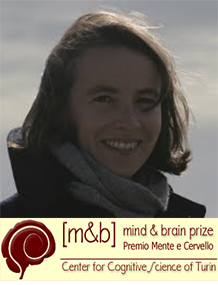
The Mind&Brain Prize was established in 2003 by the Centre for Cognitive Science of the University and Polytechnic of Turin to recognise outstanding achievement in advancing our knowledge about mind and brain in the field of Cognitive Science.
Starting from the 2010 edition it was introduced a new Mind and Brain Prize: The Young M&BP. The Young M&BP is awarded to early career scientists whose innovative research has led to significant breakthroughs in the understanding of the mind and brain.
The Young M&BP prize was given to Frédérique de Vignemont on September 25th in Turin.
Frédérique de Vignemont's website
Mind & Brain Prize website
IN THE MEDIA
DEC on France Inter
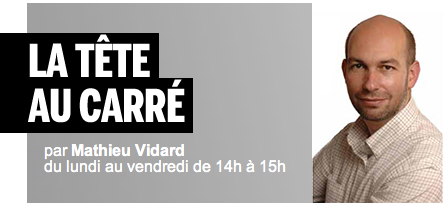 Franck Ramus (LSCP) was invited by Mathieu Vidard to speak on the French radio show "La tête au carré" on September 14th, when the topic of discussion was dyslexia.
Franck Ramus (LSCP) was invited by Mathieu Vidard to speak on the French radio show "La tête au carré" on September 14th, when the topic of discussion was dyslexia.
He went over the state of the art in scientific understanding of dyslexia.
You can listen to the broadcast on France Inter's website.
Franck Ramus's website
FRblog
Facebook
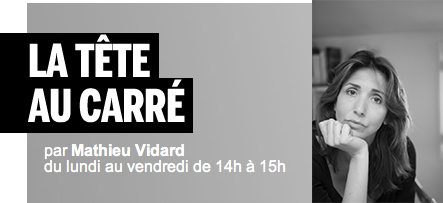 Gloria Origgi (Institut Jean Nicod) participated herself on September 16th and discussed the subject of reputation.
Gloria Origgi (Institut Jean Nicod) participated herself on September 16th and discussed the subject of reputation.
You can listen to the broadcast on France Inter's website.
Blog
Gloria Origgi's website
And in Les inrocks
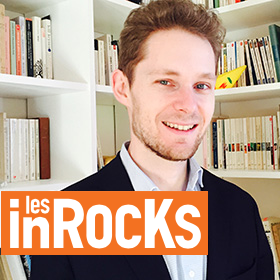 With an interview of Paul Egré (Institut Jean Nicod).
With an interview of Paul Egré (Institut Jean Nicod).
Will we soon all be speaking a universal language thanks to computers? Why should we look for a universal language that would allow us to communicate without language barriers? To better understand this need which certain scientists consider the linguistic holy grail, Les Inrocks conducted an interview with Paul Égré.
You can read the article here
Paul Egré's website
VIDEOS
David Chalmers (New York University) "Spatial Experience and virtual reality"
 Video recordings of the Jean Nicod 2015 conference series given by Professor David Chalmers of New York University, entitled "Spatial Experience and Virtual Reality" are now available online on the Savoir ENS website.
Video recordings of the Jean Nicod 2015 conference series given by Professor David Chalmers of New York University, entitled "Spatial Experience and Virtual Reality" are now available online on the Savoir ENS website.
The Institut Jean Nicod's conference series website.
SOME RECENT PUBLICATIONS
Thomas Andrillon, Sid Kouider, Trevor Agus, Daniel Pressnitzer (2015). Perceptual learning of acoustic noise generates memory-evoked potentials. Current Biology 25, 1-7
Abstract:
Experience continuously imprints on the brain, at all stages of life. The traces it leaves behind can produce perceptual learning [1],
which drives adaptive behavior to previously encountered stimuli. Recently, it has been shown that even random noise, a type
of sound devoid of acoustic structure, can trigger fast and robust perceptual learning after repeated exposure [2]. Here,
combining psychophysics, electroencephalography (EEG), and modeling, we show that the perceptual learning of noise is associated
with evoked potentials, without any salient physical discontinuity or obvious acoustic landmark in the sound. Rather, the potentials
appeared whenever a memory trace was observed behaviorally. Such memory-evoked potentials were characterized by early latencies and
auditory topographies, consistent with a sensory origin. Furthermore, they were generated even on conditions of diverted attention.
The EEG waveforms could be modeled as standard evoked responses to auditory events (N1-P2, [3]), triggered by idiosyncratic perceptual
features acquired through learning. Thus, we argue that the learning of noise is accompanied by the rapid formation of sharp neural
selectivity to arbitrary and complex acoustic patterns, within sensory regions. Such a mechanism bridges the gap between the short-term
and longer-term plasticity observed in the learning of noise [2, 4–6]. It could also be key to the processing of natural sounds within
auditory cortices [7], suggesting that the neural code for sound source identification will be shaped by experience as well as by acoustics.
Thomas Andrillon, Yuval Nir, Chiara Cirelli, Giulio Tononi & Itzhak Fried (2015). Single neuron activity and eye movement during human REM sleep and awake vision, Nature Communications 6, Article number:7884 doi:10.1038/ncomms888
Abstract:
Are rapid eye movements (REMs) in sleep associated with visual-like activity, as during wakefulness? Here we examine single-unit activities (n=2,057) and intracranial electroencephalography across the human medial temporal lobe (MTL) and neocortex during sleep and wakefulness, and during visual stimulation with fixation. During sleep and wakefulness, REM onsets are associated with distinct intracranial potentials, reminiscent of ponto-geniculate-occipital waves. Individual neurons, especially in the MTL, exhibit reduced firing rates before REMs as well as transient increases in firing rate immediately after, similar to activity patterns observed upon image presentation during fixation without eye movements. Moreover, the selectivity of individual units is correlated with their response latency, such that units activated after a small number of images or REMs exhibit delayed increases in firing rates. Finally, the phase of theta oscillations is similarly reset following REMs in sleep and wakefulness, and after controlled visual stimulation. Our results suggest that REMs during sleep rearrange discrete epochs of visual-like processing as during wakefulness.
A. Saez, M. Rigotti, S. Ostojic, S. Fusi and C.D. Salzman (2015) Abstract context representations in primate amygdala and prefrontal cortex, Neuron, 87(4):869-81.
Abstract:
Neurons in prefrontal cortex (PFC) encode rules, goals, and other abstract information thought to underlie cognitive, emotional, and behavioral flexibility. Here we show that the amygdala,
a brain area traditionally thought to mediate emotions, also encodes abstract information that could underlie this flexibility.
Monkeys performed a task in which stimulus-reinforcement contingencies varied between two sets of associations, each defining a
context. Reinforcement prediction required identifying a stimulus and knowing the current context. Behavioral evidence indicated
that monkeys utilized this information to perform inference and adjust their behavior. Neural representations in both amygdala
and PFC reflected the linked sets of associations implicitly defining each context, a process requiring a level of abstraction
characteristic of cognitive operations. Surprisingly, when errors were made, the context signal weakened substantially in the amygdala.
These data emphasize the importance of maintaining abstract cognitive information in the amygdala to support flexible behavior.
Sun, Y., M. Giavazzi, M. Adda-Decker, L. Barbosa, S. Kouider, A.-C. Bachoud-Lévi, C. Jacquemot & S. Peperkamp (2015).
Complex linguistic rules modulate early auditory brain responses. Brain and Language 149, 55-65
Abstract:
During speech perception, listeners compensate for phonological rules of their language. For instance, English place assimilation causes
"green boat" to be typically pronounced as "greem boat"; English listeners, however, perceptually compensate for this rule and retrieve
the intended sound (n). Previous research using EEG has focused on rules with clear phonetic underpinnings, showing that perceptual
compensation occurs at an early stage of speech perception. We tested whether this early mechanism also accounts for the compensation
for more complex rules. We examined compensation for French voicing assimilation, a rule with abstract phonological restrictions on
the contexts in which it applies. Our results reveal that perceptual compensation for this rule by French listeners modulates an early
ERP component. This is evidence that early stages of speech sound categorization are sensitive to complex phonological rules of the
native language.
CALENDAR
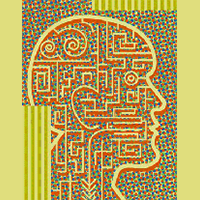
October 12, 2015
Charles Siewert (Rice university): "On the cognitive richness of experience"
Read more...

October 14, 2015
Charles Siewert (Rice university): 'The problem of self-knowledge: a critical-phenomenal approach"
Read more...
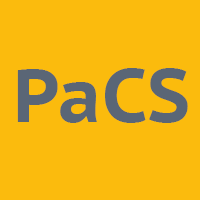
October 19, 2015
Martine Nida-Rümelin (Université de Fribourg): "Consciousness and Self-consciousness"
Read more...

November 5, 2015
Colloquium du DEC - Philipp Schyns (Univ. Glasgow)
Read more...

November 5-6, 2015
Paris Workshop on Decoding of Sound and Brain
Read more...

November 9, 2015
Stéphane Lemaire (Univ. de Rennes 1)
Read more...

November 10, 2015
Colloquium du DEC - Jean-Julien Aucouturier
Read more...

November 19, 20, 21, 2015
Colloque "Les concepts d'hallucination et d'état modifié de conscience en question"
Read more...
DEC calendar cognition.ens.Fr.
DEC Colloquium : http://www.cognition.ens.fr/ColloquiumAgendaENG.html.
Susbcribe to the newsletter
Unsubscribe from the newsletter
